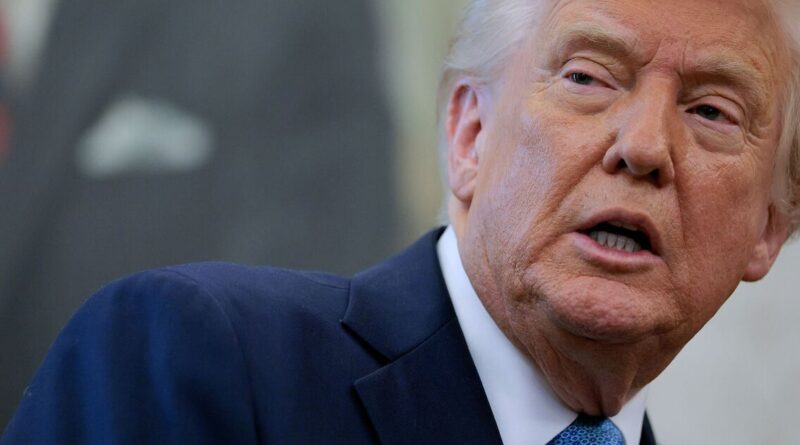‘Trump tariffs’ could actually lower UK inflation, expert says | Personal Finance | Finance
A Bank of England expert is predicting that Donald Trump’s latest barrage of tariffs would actually see the UK’s inflation rate drop – rather than rise.
Megan Greene, who sits on the Bank’s Monetary Policy Committee, also said the tariffs imposed on exports to the USA could see China and other nations divert products to Britain, among other countries. As a result Greene said this could have the impact of pushing down prices on the high street, so cooling inflation.
“I think that the tariffs actually represent more of a disinflationary risk than an inflationary risk, though,” she told Bloomberg TV. “And so, we’ll have to see how that develops going forward.”
Her comments came as the US dollar plunged to its weakest level in three years amid growing investor alarm over Trump’s trade policy.
The change in Washington comes after the US slapped a 10% blanket tariff on goods from 75 countries, including Britain, while punishing China with import charges of up to 145%. Beijing responded in kind, imposing 125% duties on American exports.
Ms Greene said this global trade chaos could benefit UK consumers. “Trade diversion from other countries that are trying to find a new home for their markets – that also pushes down on inflation,” she explained. “And export substitution, too.”
According to Mortgage Strategy, she suggests that as Chinese and EU exporters find themselves locked out of the US, they may target the UK instead – offering goods at rock-bottom prices.
Ms Greene’s comments suggest the UK’s inflation outlook may soften, despite the Bank’s previous forecast of a rise to 3.7% later this year, driven by energy bills and National Insurance hikes. Greene also warned that Trump’s trade war is causing a re-patterning of supply chains – with potential inflationary risks in the longer term.
“Trade fragmentation writ large tends to reduce knowledge spillovers. That reduces potential growth, that tends to be inflationary,” she noted.
But for now, the more immediate impact may be falling prices – and rate cuts. Markets are betting on a cut to the base rate on May 8, trimming it to 4.25%. Some economists even forecast four cuts by the end of the year to shore up Britain’s faltering economy.
And with the pound surging to near a three-year high against the dollar, Greene added: “If the dollar continues to depreciate on balance that would be disinflationary for the UK.”
The MPC’s response could define the economic landscape for the rest of 2025 – with borrowers, homeowners and shoppers all set to feel the impact.





